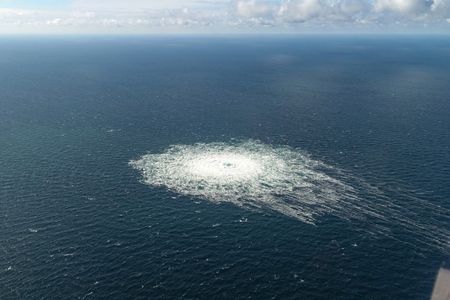ROME (Reuters) -A Ukrainian man suspected of coordinating the 2022 sabotage of the Nord Stream gas pipelines will take his legal fight against handover to Germany back to Italy’s highest court, his defence lawyer said on Monday, as the case bounces around the Italian judicial system.
An Italian appeals court in Bologna on Monday ordered that the suspect, identified only as Serhii K. under German privacy laws, should be transferred to Germany, confirming a previous ruling that it had issued last month.
However, defence lawyer Nicola Canestrini said the man would remain in Italy pending a further hearing at the Court of Cassation, the top court, which is expected to take place within about a month.
DEFENCE SAYS ACT WAS POLITICAL, REQUESTS IMMUNITY
“The defence reiterates that it will not stop until a court has fully examined the international law and human rights implications of the case,” Canestrini said in a statement, arguing his client should be granted immunity for what the lawyer termed a political act.
German prosecutors declined to comment on the Italian legal process.
The new appeal will also cite a decision this month in Poland, where a court ruled against handing over another Ukrainian suspect wanted by Germany in connection with the explosions and ordered his immediate release from detention.
Described by both Moscow and the West as an act of sabotage, the mysterious explosions in September 2022 largely severed Russian gas transit to Europe, squeezing energy supplies on the continent.
No one has taken responsibility for the blasts and Ukraine has denied any role. Serhii K, described by the defence as a former military officer, was arrested in August near the Italian town of Rimini on a European warrant.
He won a temporary reprieve against transfer earlier this month when the Court of Cassation in Rome sent the case back to the appeals court in Bologna after an initial challenge.
German prosecutors allege he was part of a group of people who planted devices on the pipelines near the Danish island of Bornholm in the Baltic Sea.
He faces charges of collusion to cause an explosion, anti-constitutional sabotage and destruction of important structures.
(Writing by Keith Weir; Editing by Crispian Balmer and Conor Humphries)









